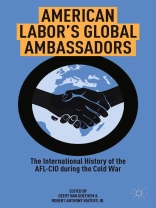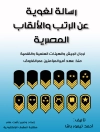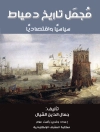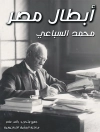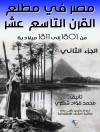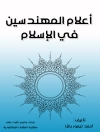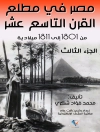After World War II, the AFL-CIO pursued an ambitious agenda of containing global communism and helping to throw off the shackles of colonialism. This sweeping collection brings together contributions from leading historians to explore its successes, challenges, and inevitable compromises as it pursued these initiatives during the Cold War.
Inhaltsverzeichnis
Foreword; Marcel van der Linden Introduction; Robert Anthony Waters, Jr. and Geert van Goethem PART I: The Global Activism of a National Trade Union 1. From Dollars to Deeds: Exploring the sources of Active Interventionism, 1934-1945; Geert van Goethem 2. The American Federation of Labor’s Cold War Campaign against ‚Slave Labor‘ at the United Nations; Quenby Olmsted Hughes 3. Marred by Dissimulation: The AFL-CIO, the Women’s Committee, and Transnational Labor Relations; Yevette Richards PART II: Not Very Diplomatic Ambassadors: Working to Defeat Communism in Europe 4. The AFL and CIO between ‚Crusade‘ and Pluralism in Italy, 1944-1963; Alessandro Brogi 5. The Influence of the American Federation of Labor on the Force Ouvrière, 1944-1954; Barrett Dower 6. AFL-CIO Support for Solidarity: Moral, Political, Financial; Eric Chenoweth PART III: Heavy-handed or Subtle? America’s Labor Ambassadors in Latin America and the Caribbean 7. Reforming Latin American Labor: The AFL-CIO and Latin America’s Cold War; Dustin Walcher 8. The AFL-CIO and ORIT in Latin America’s Andean Region, 1950s-1960s; Magaly Rodríguez García 9. More Subtle than We Knew: The AFL in the British Caribbean; Robert Anthony Waters, Jr. 10. ‚Democracy and Freedom‘ in Brazilian Trade Unionism during the Civil-Military Dictatorship: The Activities of the American Institute for Free Labor Development; Larissa Rosa Corrêa 11. Chilean Workers and the U.S. Labor Movement: From Solidarity to Intervention, 1950s-1970s; Angela Vergara PART IV: Behaving like Ambassadors: The AFL-CIO in Africa and Asia 12. Irving Brown and ICFTU Labor Diplomacy during Algeria’s Struggle for Independence, 1954-1962; Mathilde von Bülow 13. ‚We will follow a nationalist policy; but we will never be neutral‘ – American Labor and Neutralism in Cold War Africa, 1957-1962; John C. Stoner 14. ‚Free Labor Versus Slave Labor‘: Free Trade Unionism and the Challenge of War-torn Asia; Edmund F. Wehrle, Jr. PART V Conclusion: Transnational Labor Politics in the Global Cold War; Federico Romero
Über den Autor
Quenby Olmsted Hughes, Rhode Island College, USA Yevette Richards, George Mason University, USA Alessandro Brogi, University of Arkansas, USA Barrett Dower, independent scholar and retired president of the Paris-American Chamber of Commerce Dustin Walcher, Southern Oregon University, USA Larissa Rosa Correa, Universidade Estadual de Campinas, Brazil Angela Vergara, California State University at Los Angeles, USA John C. Stoner, University of Pittsburgh, USA Mathilde von Bülow, University of Nottingham, UK Edmund F. Wehrle, Eastern Illinois University, USA Eric Chenoweth, Institute for Democracy in Eastern Europe, USA Marcel van der Linden, International Institute of Social History, The Netherlands Magaly Rodríguez García, Vrije Universiteit Brussel, Belgium Federico Romero, European University Institute, Italy
